HSBC 2004 Annual Report Download - page 124
Download and view the complete annual report
Please find page 124 of the 2004 HSBC annual report below. You can navigate through the pages in the report by either clicking on the pages listed below, or by using the keyword search tool below to find specific information within the annual report.-
 1
1 -
 2
2 -
 3
3 -
 4
4 -
 5
5 -
 6
6 -
 7
7 -
 8
8 -
 9
9 -
 10
10 -
 11
11 -
 12
12 -
 13
13 -
 14
14 -
 15
15 -
 16
16 -
 17
17 -
 18
18 -
 19
19 -
 20
20 -
 21
21 -
 22
22 -
 23
23 -
 24
24 -
 25
25 -
 26
26 -
 27
27 -
 28
28 -
 29
29 -
 30
30 -
 31
31 -
 32
32 -
 33
33 -
 34
34 -
 35
35 -
 36
36 -
 37
37 -
 38
38 -
 39
39 -
 40
40 -
 41
41 -
 42
42 -
 43
43 -
 44
44 -
 45
45 -
 46
46 -
 47
47 -
 48
48 -
 49
49 -
 50
50 -
 51
51 -
 52
52 -
 53
53 -
 54
54 -
 55
55 -
 56
56 -
 57
57 -
 58
58 -
 59
59 -
 60
60 -
 61
61 -
 62
62 -
 63
63 -
 64
64 -
 65
65 -
 66
66 -
 67
67 -
 68
68 -
 69
69 -
 70
70 -
 71
71 -
 72
72 -
 73
73 -
 74
74 -
 75
75 -
 76
76 -
 77
77 -
 78
78 -
 79
79 -
 80
80 -
 81
81 -
 82
82 -
 83
83 -
 84
84 -
 85
85 -
 86
86 -
 87
87 -
 88
88 -
 89
89 -
 90
90 -
 91
91 -
 92
92 -
 93
93 -
 94
94 -
 95
95 -
 96
96 -
 97
97 -
 98
98 -
 99
99 -
 100
100 -
 101
101 -
 102
102 -
 103
103 -
 104
104 -
 105
105 -
 106
106 -
 107
107 -
 108
108 -
 109
109 -
 110
110 -
 111
111 -
 112
112 -
 113
113 -
 114
114 -
 115
115 -
 116
116 -
 117
117 -
 118
118 -
 119
119 -
 120
120 -
 121
121 -
 122
122 -
 123
123 -
 124
124 -
 125
125 -
 126
126 -
 127
127 -
 128
128 -
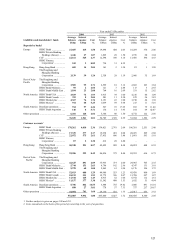 129
129 -
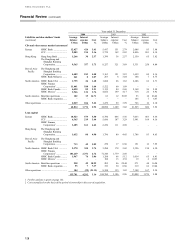 130
130 -
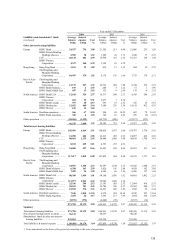 131
131 -
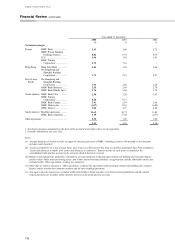 132
132 -
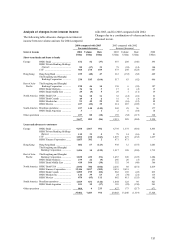 133
133 -
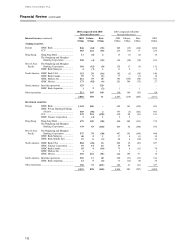 134
134 -
 135
135 -
 136
136 -
 137
137 -
 138
138 -
 139
139 -
 140
140 -
 141
141 -
 142
142 -
 143
143 -
 144
144 -
 145
145 -
 146
146 -
 147
147 -
 148
148 -
 149
149 -
 150
150 -
 151
151 -
 152
152 -
 153
153 -
 154
154 -
 155
155 -
 156
156 -
 157
157 -
 158
158 -
 159
159 -
 160
160 -
 161
161 -
 162
162 -
 163
163 -
 164
164 -
 165
165 -
 166
166 -
 167
167 -
 168
168 -
 169
169 -
 170
170 -
 171
171 -
 172
172 -
 173
173 -
 174
174 -
 175
175 -
 176
176 -
 177
177 -
 178
178 -
 179
179 -
 180
180 -
 181
181 -
 182
182 -
 183
183 -
 184
184 -
 185
185 -
 186
186 -
 187
187 -
 188
188 -
 189
189 -
 190
190 -
 191
191 -
 192
192 -
 193
193 -
 194
194 -
 195
195 -
 196
196 -
 197
197 -
 198
198 -
 199
199 -
 200
200 -
 201
201 -
 202
202 -
 203
203 -
 204
204 -
 205
205 -
 206
206 -
 207
207 -
 208
208 -
 209
209 -
 210
210 -
 211
211 -
 212
212 -
 213
213 -
 214
214 -
 215
215 -
 216
216 -
 217
217 -
 218
218 -
 219
219 -
 220
220 -
 221
221 -
 222
222 -
 223
223 -
 224
224 -
 225
225 -
 226
226 -
 227
227 -
 228
228 -
 229
229 -
 230
230 -
 231
231 -
 232
232 -
 233
233 -
 234
234 -
 235
235 -
 236
236 -
 237
237 -
 238
238 -
 239
239 -
 240
240 -
 241
241 -
 242
242 -
 243
243 -
 244
244 -
 245
245 -
 246
246 -
 247
247 -
 248
248 -
 249
249 -
 250
250 -
 251
251 -
 252
252 -
 253
253 -
 254
254 -
 255
255 -
 256
256 -
 257
257 -
 258
258 -
 259
259 -
 260
260 -
 261
261 -
 262
262 -
 263
263 -
 264
264 -
 265
265 -
 266
266 -
 267
267 -
 268
268 -
 269
269 -
 270
270 -
 271
271 -
 272
272 -
 273
273 -
 274
274 -
 275
275 -
 276
276 -
 277
277 -
 278
278 -
 279
279 -
 280
280 -
 281
281 -
 282
282 -
 283
283 -
 284
284 -
 285
285 -
 286
286 -
 287
287 -
 288
288 -
 289
289 -
 290
290 -
 291
291 -
 292
292 -
 293
293 -
 294
294 -
 295
295 -
 296
296 -
 297
297 -
 298
298 -
 299
299 -
 300
300 -
 301
301 -
 302
302 -
 303
303 -
 304
304 -
 305
305 -
 306
306 -
 307
307 -
 308
308 -
 309
309 -
 310
310 -
 311
311 -
 312
312 -
 313
313 -
 314
314 -
 315
315 -
 316
316 -
 317
317 -
 318
318 -
 319
319 -
 320
320 -
 321
321 -
 322
322 -
 323
323 -
 324
324 -
 325
325 -
 326
326 -
 327
327 -
 328
328 -
 329
329 -
 330
330 -
 331
331 -
 332
332 -
 333
333 -
 334
334 -
 335
335 -
 336
336 -
 337
337 -
 338
338 -
 339
339 -
 340
340 -
 341
341 -
 342
342 -
 343
343 -
 344
344 -
 345
345 -
 346
346 -
 347
347 -
 348
348 -
 349
349 -
 350
350 -
 351
351 -
 352
352 -
 353
353 -
 354
354 -
 355
355 -
 356
356 -
 357
357 -
 358
358 -
 359
359 -
 360
360 -
 361
361 -
 362
362 -
 363
363 -
 364
364 -
 365
365 -
 366
366 -
 367
367 -
 368
368 -
 369
369 -
 370
370 -
 371
371 -
 372
372 -
 373
373 -
 374
374 -
 375
375 -
 376
376 -
 377
377 -
 378
378
 |
 |

HSBC HOLDINGS PLC
Financial Review (continued)
122
US GAAP
The Financial Accounting Standards Board
(‘FASB’ ) (US GAAP) has issued the following
accounting standards, which become fully effective
in future financial statements.
In December 2003, the American Institute of
Certified Public Accountants (‘AICPA’ ) released
Statement of Position 03-3, ‘Accounting for Certain
Loans or Debt Securities Acquired in a Transfer’
(‘SOP 03-3’ ). SOP 03-3 addresses accounting for
differences between contractual cash flows and cash
flows expected to be collected from an investor’ s
initial investment in loans or debt securities acquired
in a transfer if those differences are attributable to
credit quality. SOP 03-3 is effective for loans
acquired in fiscal years beginning after 15 December
2004. Adoption is not expected to have a material
impact on the US GAAP information in HSBC’ s
financial statements.
In March 2004, the FASB reached a consensus
on Emergent Issues Task Force (‘EITF’ ) 03-1, ‘The
Meaning of Other-Than-Temporary Impairment and
Its Application to Certain Investments’ . EITF 03-1
provides guidance for determining when an
investment is impaired and whether the impairment
is other than temporary. EITF 03-1 also incorporates
into its consensus the required disclosures about
unrealised losses on investments announced by the
EITF in late 2003 and adds new disclosure
requirements relating to cost-method investments.
The new disclosure requirements are effective for
annual reporting periods ending after June 15, 2004
and the new impairment accounting guidance was to
become effective for reporting periods beginning
after June 15, 2004. In September 2004, the FASB
delayed the effective date of EITF 03-1 for
measurement and recognition of impairment losses
until implementation guidance is issued. In
December 2004, the FASB decided to reconsider in
its entirety all guidance on disclosing, measuring and
recognising other-than-temporary impairments of
debt and equity securities and requires companies to
continue to comply with existing accounting
literature. Until the new guidance is finalised, the
impact on HSBC’ s financial position and results of
operations cannot be determined.
SFAS 123 (revised 2004) ‘Share-Based
Payment’ (‘SFAS 123R’ ) was issued in December
2004 to replace SFAS 123 ‘Accounting for Stock
Based Compensation’ (‘SFAS 123’ ). SFAS 123R
requires a fair value method of accounting for stock-
based compensation plans. Under the fair value
method, compensation cost is measured at the date
of grant based on the value of the award and is
recognised over the service period. HSBC had
already elected to follow the fair value method
encouraged by SFAS 123. Where annual bonuses are
awarded in restricted shares, and the employee must
remain with HSBC for a fixed period in order to
receive the shares, HSBC has, to date, interpreted the
service period as being the year to which the bonus
relates. HSBC has fully expensed the share award in
that year under US GAAP, consistent with the UK
GAAP treatment. Under SFAS 123R, the service
period is presumed to be the vesting period, i.e. the
period the employee must remain with HSBC.
Accordingly, for awards granted after the effective
date of SFAS 123R, the expense of such awards will
be spread forward over the vesting period. HSBC
will adopt SFAS 123R from 1 July 2005.
The effect of adopting this new accounting
treatment will be that 2005 bonuses paid in restricted
shares will be excluded from staff costs for 2005 and
instead will be expensed over the vesting period with
a corresponding increase in net income. The amount
of these awards is dependent on 2005 performance.
2004 bonuses that will be paid in restricted shares
were approximately US$130 million.
